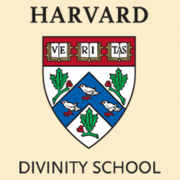
In the weeks after the horrific events of September 11, the Harvard Divinity School community has responded with pastoral and intellectual action as well as prayer.
"To date we have no known members of our community who suffered direct loss of family or relations in the tragedies of New York, Washington, and Pennsylvania, but we have been offering continuing prayer for the victims and their families," J. Bryan Hehir, Chair of the Executive Committee of the Faculty of Divinity, said on September 19 in a message to the community. "Faculty, staff, and students have been cooperative and supportive of each other, and our chapels have been left open for personal and community prayer. HDS members have also participated in the larger prayer service of the university and have expressed concern for the welfare of our students from abroad."
Recent Actions
On Wednesday, September 26, Professor Harvey Cox brought a Partners for Peace delegation to speak to his "Contemporary Interpretations of Jesus" class. The delegation was to have included three women from Jerusalem—an Israeli and two Palestinians—but Michal Shohat, who is general secretary of the Meretz Party, the "peace party" in Israel, was unable to come because of a flight delay. The two Palestinians—Jean Zaru, the Presiding Clerk of the Ramallah Friends Meeting, and Rawan Damen, a recent graduate of Birzeit University and the author of three books on Palestinian children—spoke of the violence and constant insecurity in their lives in the face of the Israeli occupation of the West Bank. Jerri Bird, president of Partners of Peace, then conveyed what Shohat has been saying in her presentations: that Israelis also live amid violence, in constant fear. All of the women agree on three points that they see as the start of a solution: Israel must evaluate its policy on territories and settlements, it must allow a Palestinian state to exist side by side with Israel, and Jerusalem must be shared. Zaru and Damen also called emphasized the need for all governments (including those of the United States and Israel) to be held accountable to international law.
Students from the class asked the women how they get past feelings of defensiveness and blame, and asked what could be done to help. The women encouraged the HDS audience to make dialogue a way of life, and to hear and tell the stories of ordinary people from all over the world. "Our world is very small," Damen stressed. "The human family stands or falls together," Zaru said.
On another front, a letter regarding the September 11 tragedy was sent by e-mail and post on September 27 from Bryan Hehir to HDS alumni. The message informed the alumni about Divinity School and Harvard-wide responses and offered support to the alumni in their own lives and work. Many alumni have responded with messages about their various ministries to people in the context of personal and collective loss.
Public Discussion
To provide a chance for public discussion, a forum entitled "Dimensions of the Tragedy: An Opportunity to Think and Talk" was held on the evening of September 19, in the Sperry Room of Andover Hall. Hehir moderated the discussion, which included six other faculty members who discussed a range of issues surrounding the September 11 events and the ensuing responses of the United States government and American citizens. These same faculty, and others from HDS, have also been providing expert comment to numerous print, radio, and broadcast journalists throughout the last 10 days. In addition, many HDS faculty members have been working as pastoral counselors within a Harvard-wide network, and serving as speakers at discussions sponsored by other Harvard schools.
The September 19 panelists included: Leila Ahmed, Professor of Women's Studies in Religion; Ali Asani, Professor of the Practice of Indo-Muslim Languages and Culture; Peter Gomes, Plummer Professor of Christian Morals; William Graham, Albertson Professor of Middle Eastern Studies and Professor of the History of Religion; David Little, Dunphy Professor of the Practice in Religion, Ethnicity, and International Conflict; and Robert Orsi, Charles Warren Professor of the History of Religion in America. Two other invited professors, Diana Eck and Cornel West, could not attend the discussion because they had traveled to New York for interviews on PBS television programs.
Among the questions raised by the HDS panelists, in the context of national mourning for the victims, were: Do the events of September 11 really have anything to do with Islam, and what does it mean to be Muslim in America now? Have we (in the United States) really come to terms with religious pluralism or does it exist here only superficially? What happens to the possibilities of dissent in a country that, in the language of its leaders and citizens, is beginning to sacralize its national purpose? What should the role of the university be in such a time?
Among the concerns expressed by faculty and members of the audience were a fear of a backlash against Americans of Middle Eastern and Asian descent and their places of worship, and the need for the United States government to engage in a complex analysis of the situation while providing an international, collaborative response to the attacks of September 11. Many audience members expressed a hope that the United States would show restraint in any military response, and some noted their desire to organize a new sort of sociopolitical movement in response to war fever. Others noted the relative absence in much of the American media's coverage of September 11 of voices and pictures from other parts of the world. Members of the panel and the audience disagreed over whether members of Congress are well-informed on the issues and responding in effective ways.
As he ended the session, Hehir asked the audience if similar forums should be scheduled for the near future, and the idea was met with virtually unanimous assent. So far, a series of brown-bag lunch discussions between students and HDS faculty has been scheduled.
—by Wendy McDowell
